Report from the international anarchist meeting in St. Imier, Switzerland

Photoreportage by Efthymis Hadjitheodorou for our Greek comrades at Aftoleksi.
The egalitarian relations which I found in the Jura Mountains, the independence of thought and expression which I saw developing in the workers, and their unlimited devotion to the cause appealed far more strongly to my feelings; and when I came away from the mountains, after a week’s stay with the watchmakers, my views upon socialism were settled. I was an anarchist.
~Kropotkin
On Sunday the international anarchist meeting in St Imier, Switzerland concluded. One hundred and fifty years after Bakunin’s anarchist international, the same small town in the valley separating the Jura Mountains from Bern once again hosted thousands of anarchists and anti-authoritarians from all over the world for four days of events and discussions.

Anarchy 2023 (the official name of the meeting) covered the whole city geographically, as many municipal buildings (and more) were allocated to the event for different purposes. There was a camping area, different spaces for discussions, workshops, information, concerts.
There were also open gyms for people who did not want to suffer the cold of camping (at night the temperature reached ten degrees), cis men free accommodation and a nursery.

Furthermore, it should be noted that accommodation and workshops were free of charge and food was freely contributed.

Arriving at St Imier, we didn’t know what to expect. The organisers had chosen to remain in the role of the coordinator, leaving the success of the festival to be judged by the individual contribution of each visitor, both practical and political.
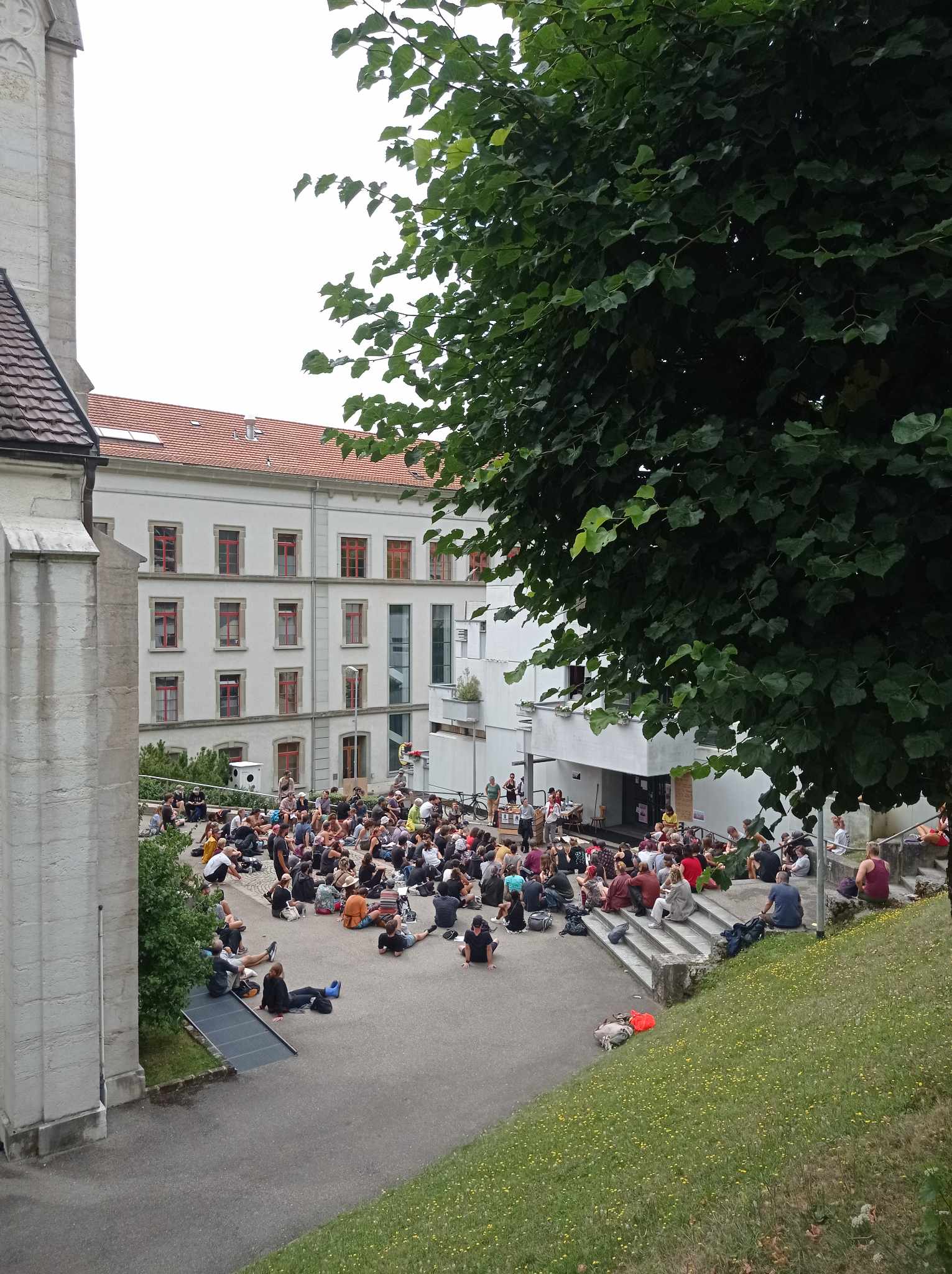
This meant that on a practical level, it was up to each individual to declare an interest and dedicate one, two or three hours each day to some shift out of the hundreds needed to keep everything running smoothly. The tasks could range from helping in the parking lots, cleaning, cooking for three thousand rations every day, patrolling, etc.
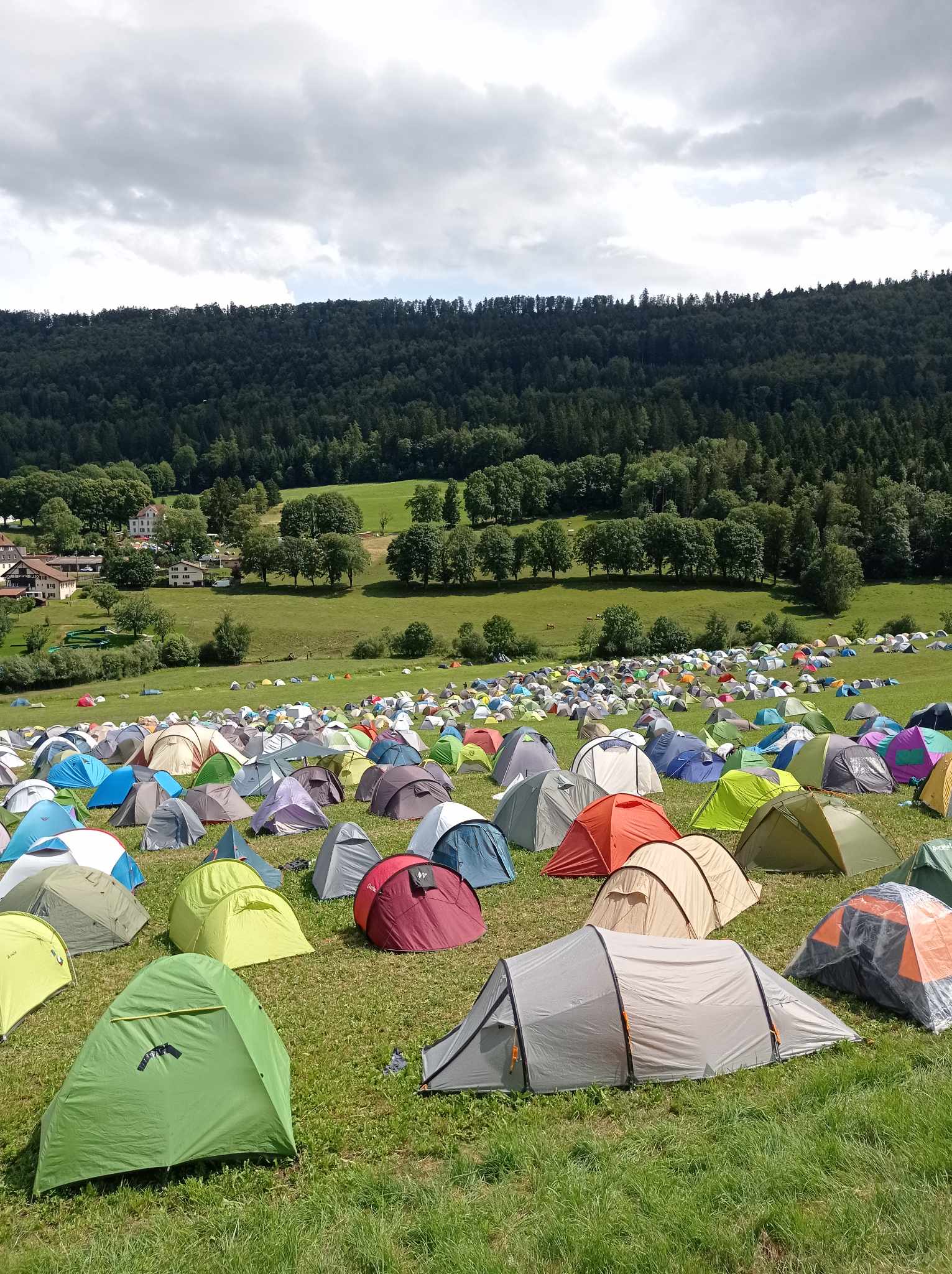
As for the political level, it is important to mention that events and discussions had gained a place in the programme through an internet platform where any individual or group could propose something specific. This meant that the themes displayed an incredible diversity. From lifestyle exchanges of experiences (“hitchhiking as a political act”, “how to live without money”), updates on different struggles (“the rise of the far right in Italy”, “four years since the Chilean uprising”, “the legacy of George Floyd’s uprising on the Stop Cop City movement in Atlanta”), to activist workshops (“how to protect our movements from leftist logics”, “how to behave in the black bloc”).

Such diversity means that there were also events that were politically opposed to each other, with the issue of the Russian invasion perhaps being the most hotly contested example. Although most events held on the war accepted the right of self-defence for Ukrainians as the minimum anarchist political basis, there were individuals in the anti-militarist movement who saw the end of the war as the number one goal that anti-authoritarians should have today.
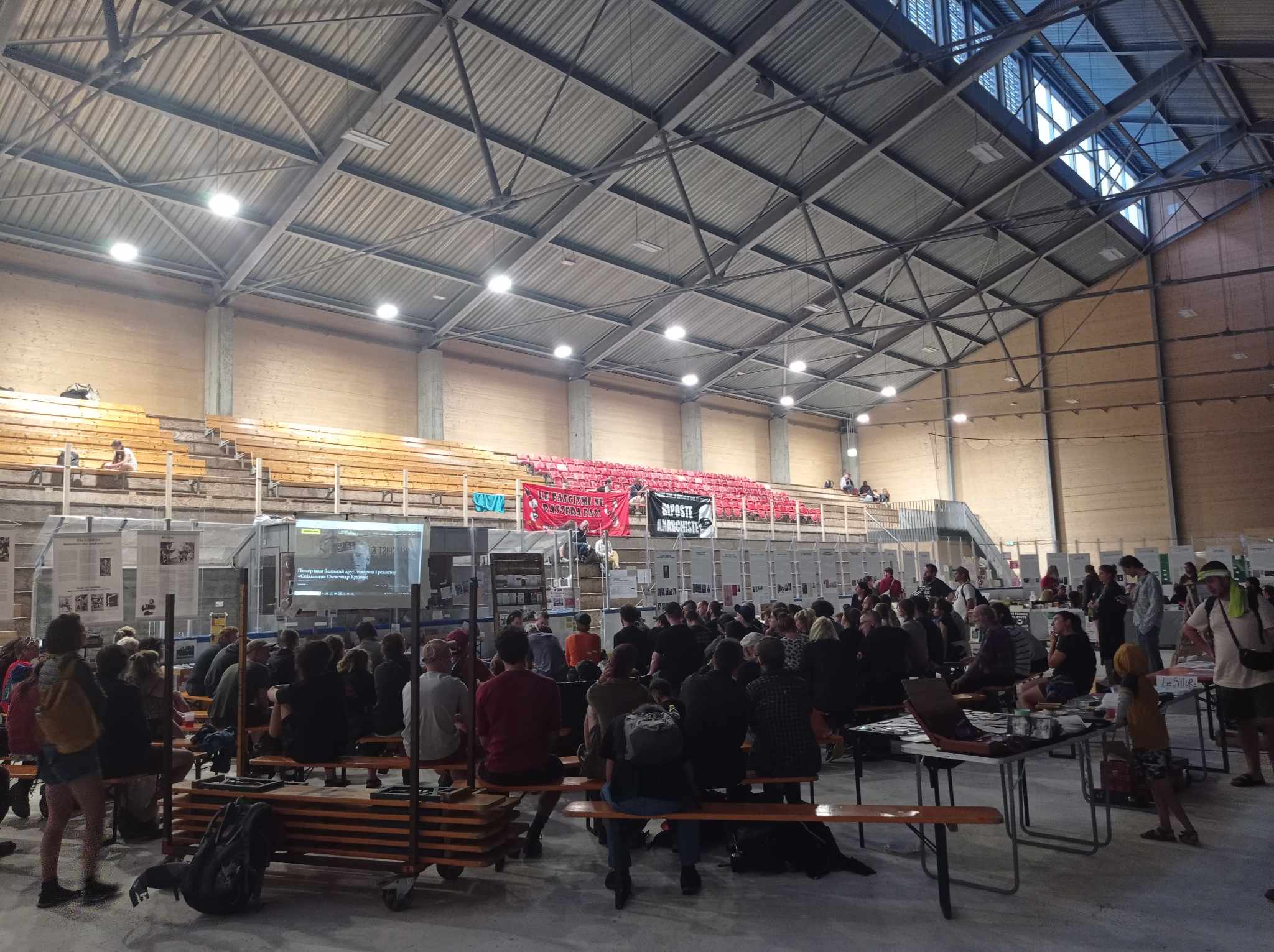
I personally think that the event by anarchists from Russia, Ukraine and Belarus, who are actively resisting the invasion, was one of the most interesting of the meeting, both because we learned about the different structures and groups active and the gap in analysis of the movement there compared to the West. Three different reasons were highlighted from the discussion: the lack of information and networking, the romantic idealism used by westerners “from a position of safety” and finally, the infiltration of authoritarian leftist analysis into anarchist groups.
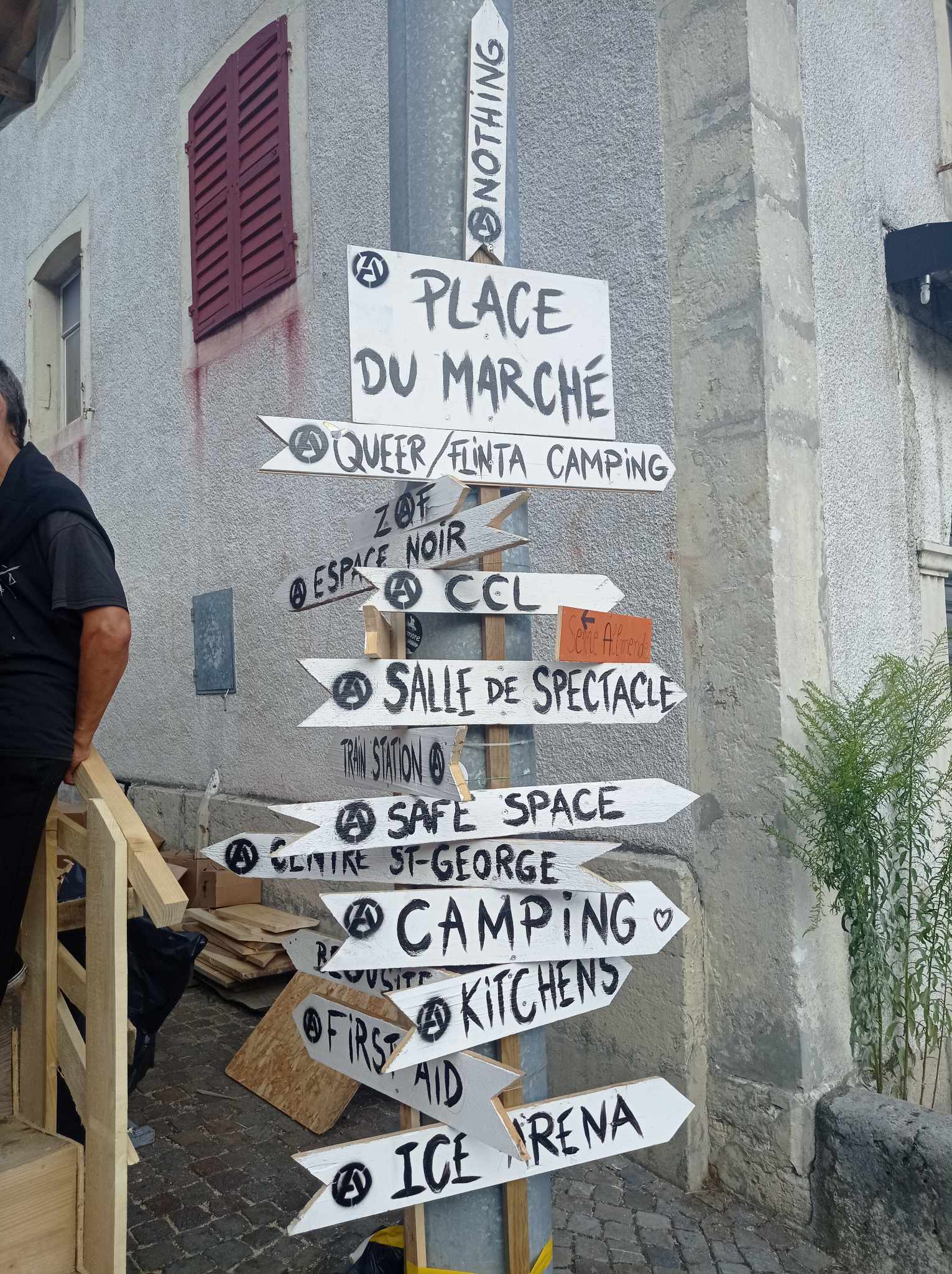
Along with the meeting, many anti-authoritarians also supported a march on Saturday 22 July in Lausanne called by Kurdish organisations against the centenary of the signing of the treaty.
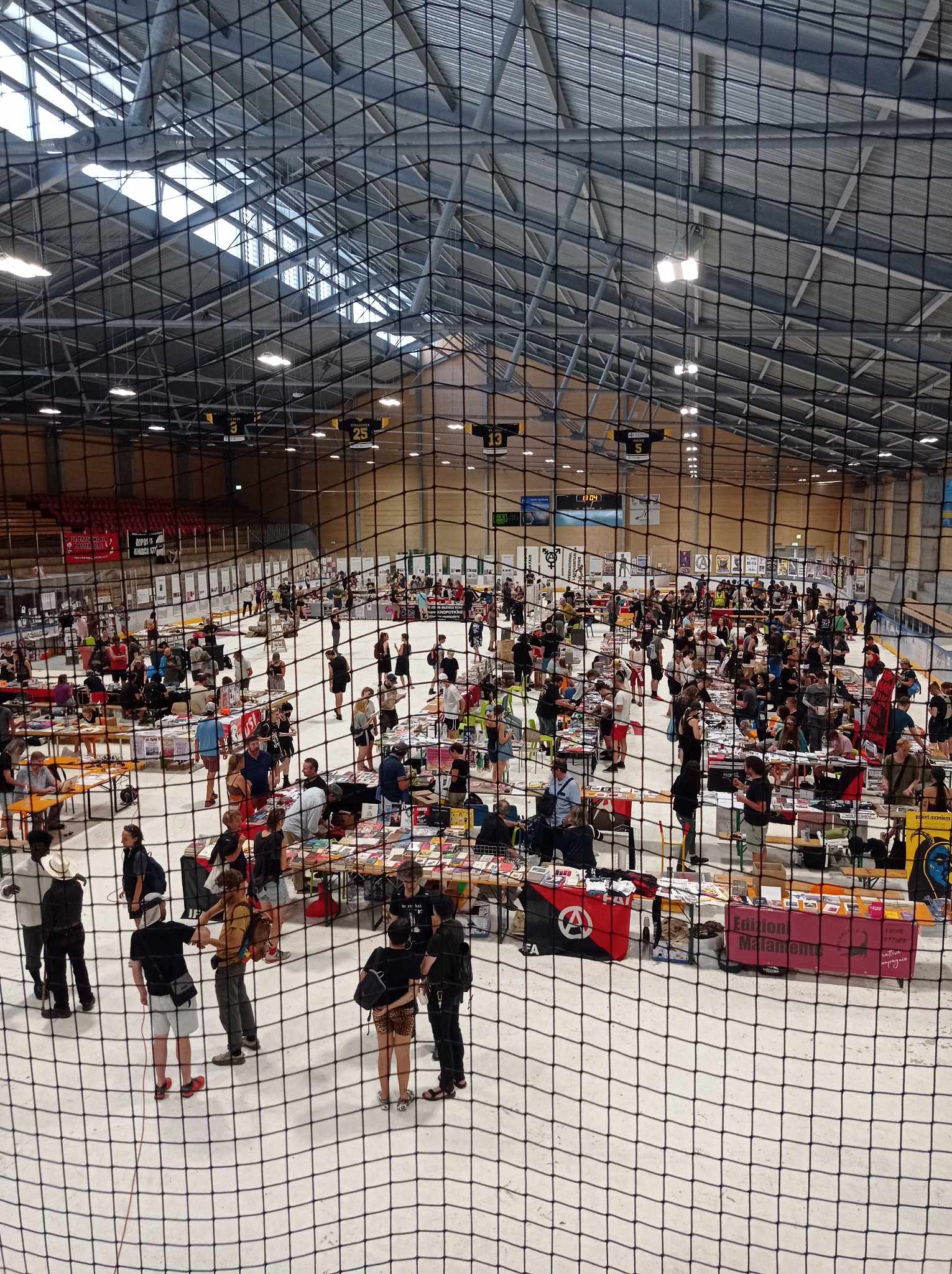
The meeting did not lack Greek presence. At the book fair that was on all days at the ice hockey rink in St Imier, the Anarchist Political Organisation had a permanent place at the tables. Also, on Friday evening, people from the refugee squat Notaras 26 held an intervention on the crime of Pylos just before the Krav Boca concert started. Finally, the French-Greek anarchist filmmaker Yannis Youloundas presented scenes from his new film “We are not afraid of ruins” which studies the anarchist movement in Greece after the election of Mitsotakis in July 2019, followed by a discussion.

The festival ended at noon on Sunday with the recitation of revolutionary anarchist songs in the central square of the small town. With raised fists, anti-authoritarians from all over the world renewed their appointment ten years from now, pledging no retreat in the struggle for a free society.
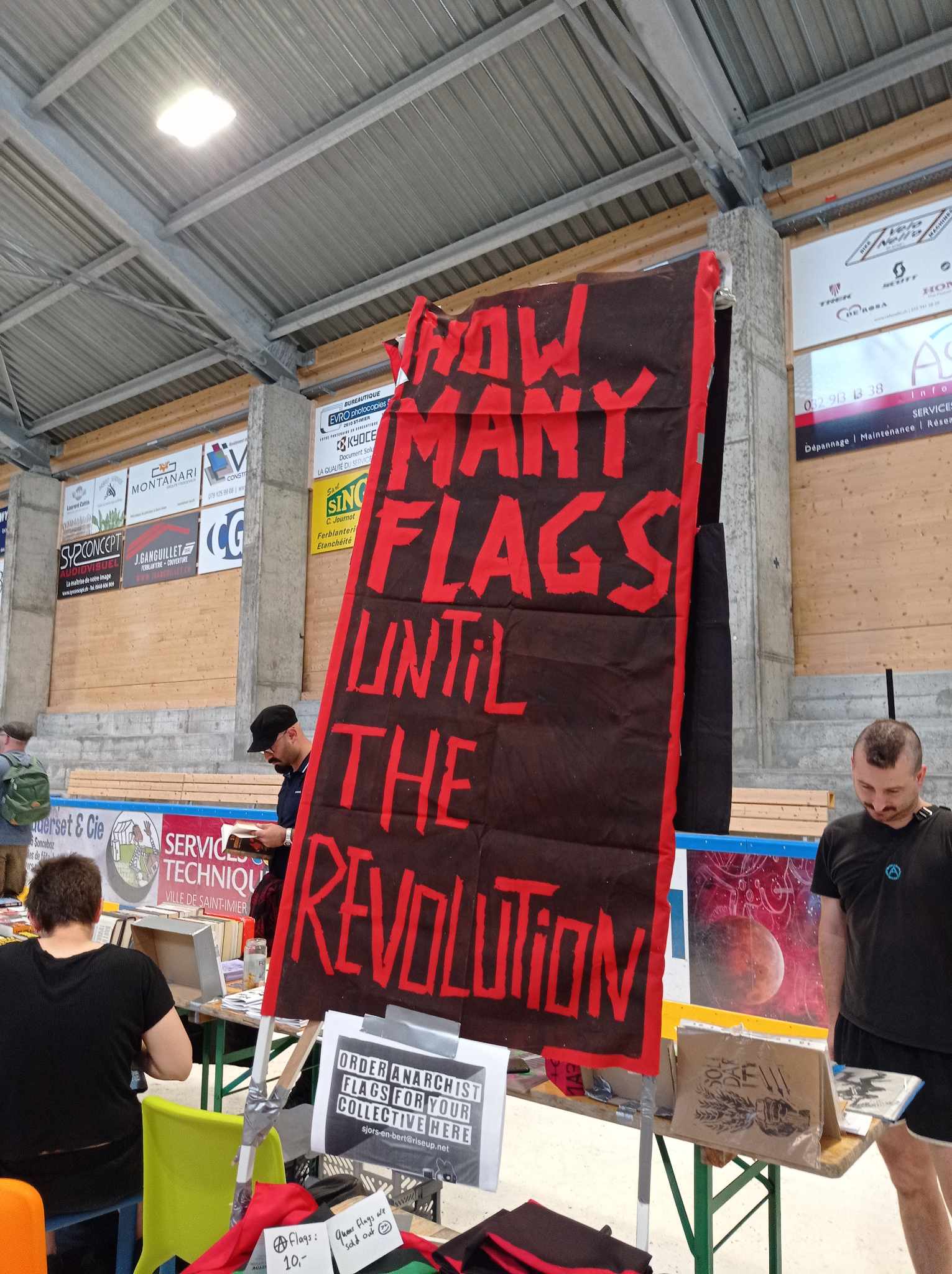
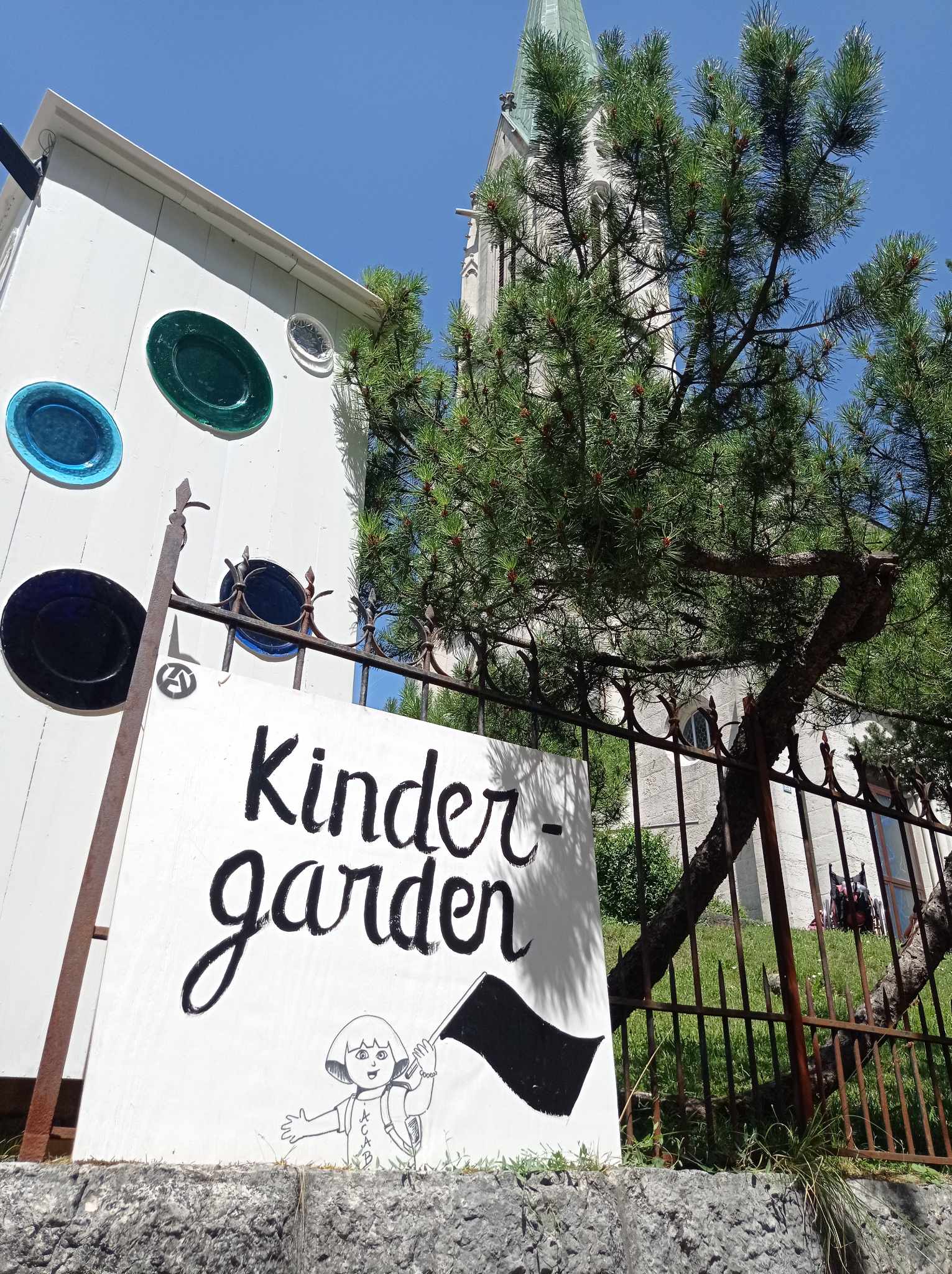

Leave a Reply